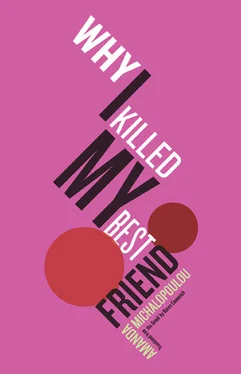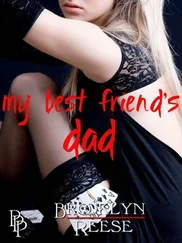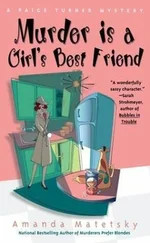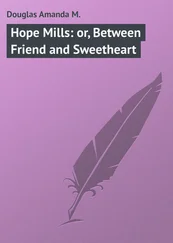Martha and Fotini bring me romance novels from the kiosk, which are always written by some Rachel or Betty or Nerina and have dramatic titles: The Misunderstanding , or The Price of Love , or Fleeting Time . They read them in a single day, bawling their eyes out, then have to wait until the next one is released the following Thursday. It’s the picture on the cover that interests me: a woman, almost always blond, gazing over her shoulder, hand on her heart, at the man walking up to her from behind, a glass of champagne in each hand. Or the woman is walking off, suitcase in hand, and the man is running after her, his tie loosened and flapping in the breeze. Or they’re dancing in the moonlight. Anna is nowhere to be found. I picture her with her hand on her heart, or packing a suitcase for a vacation with Angelos, or the two of them dancing in the moonlight. Barthes writes, as if he knew: Countless episodes in which I fall in love with someone loved by my best friend: every rival has first been a master, a guide, a barker, a mediator .
Aunt Amalia puts it more simply: “Your friend is a spoiled brat,” she says as she puts curlers in her hair.
Spoiled is right.
“She can’t just stay out until all hours without ever telling me where she’s going or where she’s been. What am I supposed to say to her parents?” Aunt Amalia can’t comprehend that there are parents in the world like Antigone and Stamatis, who you can call by their first name, or smoke in front of, or go to demonstrations with.
I roll over and pretend I’m asleep. Whereas actually I’m picking at the stuccoed wall, scratching into it with my nails. I, too, need to leave my mark somewhere.
A gentle breeze picks up, stirring the bougainvillea outside the window. Its shadow falls on the sheet, shaping human figures that kiss and part, kiss and part. Anna undresses in the dark and crawls into bed next to me. She wraps herself around me and starts to cry. Her tears trickle down my back, tickling me. With her arms around my waist it’s as if the two of us are speeding along on a motionless motorcycle. As if we’re headed at breakneck speed toward some interior spot, deep inside ourselves. Barthes writes, Jealousy is an equation involving three permutable (indeterminate) terms: one is always jealous of two persons at once: I am jealous of the one I love and of the one who loves the one I love. The odiosamato (as the Italians call the “rival”) is also loved by me: he interests me, intrigues me, appeals to me .
“Can you ever forgive me, Maria?”
I pretend I’m asleep. Anna sinks her face into my hair, sighs on the nape of my neck. Her body has an acrid smell, like the silver spoons my mother is always polishing.
“Please, Maria, talk to me. .”
She sticks her knees in the hollows of mine and we’re like two of those spoons in my mother’s drawer — some of that metallic smell rubs off on me, too. She doesn’t relax her grip all night, I keep waking and drifting off again in her asphyxiating embrace. Only in the morning, when she gets up to pee, do I realize that what I was smelling was the smell of sex, her sex. The mussel.
Odiosamato.
I throw off the sheets and hurriedly get dressed. I don’t want to be pitied. I throw a swimsuit, towel, my sketch pad and charcoals in a bag, and A Lover’s Discourse . I sneak out of the house on tiptoe, borrow Fotini’s bicycle and ride off, upright on the pedals all the way to Perdika. I’ve got a certain rock formation in mind. That’s where I’ll stay. I spread my towel in the cave, open the pad and start to sketch. I’m still there at sunset, drawing people with tiger tails, portraits of Medusa with snakes for hair, strange animals that don’t exist in nature. When it starts to get dark, I lie down with Barthes: The lover’s anxiety: it is the fear of a mourning which has already occurred, at the very origin of love, from the moment when I was first “ravished.” Someone would have to be able to tell me: “Don’t be anxious any more — you’ve already lost him/her.”
Him, her. Him, her, himherhimherhim. My teeth are chattering.
I’m not hungry, or thirsty, or tired. My gaze is trained on a little spotted insect slowly creeping up my towel. I’ve lived this scene before. I know what comes next. I reach out my hand, grab it, and put it in my mouth.
A helpless insect. Cold, crunchy. African.
Anna and I have decided on a major change: we’re going to cut our hair. September is hot this year, and besides, we can’t very well start high school with braids and ponytails. Aunt Amalia takes us to a fancy salon in Kolonaki. The hairdresser’s name is Gino. He looks like a rooster, with a coxcomb of dyed orange hair. A red-haired girl hands us a book with pictures of different hairstyles to flip through. There’s a bob we both like, with bangs and wisps framing the face.
“No,” says Gino. “It’s not right for you girls. You’re young, do something daring for once!”
He rests his scissors high up on my neck, and with one fell swoop my hair lands in a heap on the floor. I look like one of the convicts Foucault wrote about in the latest issue of Actuel —the ones who try to obliterate the deep division between innocence and guilt. Anna looks like one of Genet’s prisoners. Her face looks naked, almost debased; her enormous, questioning eyes are more prominent than ever.
“What did he do to us?” she whispers, throwing me a sideways glance in the mirror.
The red-haired girl finishes us off with an assortment of gels and sprays. We leave the salon looking like aliens, hair stiff with hairspray. Aunt Amalia takes us to her apartment, which Anna and I call “the antique store,” because it’s full of old furniture and taxidermied birds. She makes us spaghetti with meat sauce, but neither of us can eat a thing. We lock ourselves in the bathroom and cry.
“Girls, for goodness’ sake, don’t make such a fuss!” Aunt Amalia shouts from the other side of the door. “Just wash it a few times and it’ll be longer.”
We wash it, we pull on the ends, but our hair doesn’t get any longer.
“How are we going to show our faces at school?” I ask.
“What’s Angelos going to say?” she says.
That’s not my problem. From the morning they found me at the far end of the beach at Perdika, shaking with cold, feverish and delirious, I swore I’d never give the two of them another thought. Angelos was dead to me. Anna is still alive, of course, of necessity. She’s my best friend. Odiosamato.
And as always, she finds a way: she manages to do her hair in a way that looks good. A few wisps tucked behind her ears and she actually looks cute. I don’t. I push my hair back, it falls forward. I brush it forward, it goes wherever it wants. Then one Sunday when we’re hanging out in Monastiraki, by the flea market, my gaze falls on a pair of army pants in a shop window on Adrianou Street.
“Aren’t they a little too punk?” Anna says, making a face.
All of a sudden I flash back to Raoul and Michel, the anti-racist movement, the Sex Pistols, the squatters in Berlin.
Why not?
In the army pants I feel stronger. I put three pins on my leather jacket, all of Siouxsie and the Banshees. I walk around singing “Christine” under my breath, as if it were my own personal anthem: She tries not to shatter, kaleidoscope style, personality changes behind her red smile, now she’s in purple now she’s the turtle, disintegrating. . What exactly is kaleidoscope style? Or purple disintegration? The weirdest boys in school come up to me during break and want to talk to me, all because I’m wearing my leather jacket over my uniform.
Anna, in contrast, is going through an annoyingly pink phase. She says sex is allowed now, since it’ll help us mature. If I push her on it, she quotes Barthes: “In no love story I have ever read is a character ever tired,” she says proudly, as if she thought it up herself. And yet she herself seems tired, tranquil, predictable: she waits for Angelos after school, sits with her legs to one side of his motorbike seat, folded just so, as if we were back in the ’50s and she were Grace Kelly riding off with her prince. They have sex every weekend. As for me, I’m there in the bathroom, alone. I’m dating a guy named Pavlos, we’re still at the hand-on-the-chest stage, but I tell Anna all kinds of stories that I lift straight from the pages of Erotic Harmony . Pavlos has a motorbike, too. But he understands my fear of exhaust pipes and never offers me a ride. He just pushes his bike in the street as we walk side by side, and the whole school makes fun of us for it.
Читать дальше












